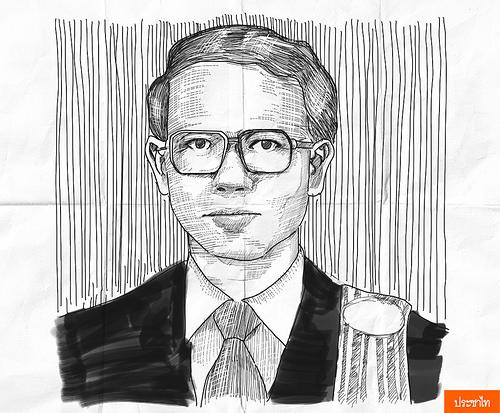After a 12-year fight for justice, the authorities have closed their investigation into the disappearance of a human rights lawyer with no one being prosecuted.
On 12 October 2016, Angkhana Neelapaijit, a Commissioner of the National Human Rights Commission (NHRC),
posted on her Facebook account that she had received a letter from the Department of Special Investigation (DSI).
The letter informs her that the DSI has decided to end their investigation on the enforced disappearance of Somchai Neelapaijit, a renowned human rights lawyer and Angkhana’s husband.
According to the letter, the authorities decided to close the case because they cannot find any culprit.
“The DSI has spent 11 years and three months investigating the enforced disappearance of Somchai Neelapaijit and concluded that the investigation should be stopped because they can’t find the culprits,” read Angkhana’s post. “If the DSI cannot do anything in a case with abundant evidence, like Somchai’s case, how could they deal with cases of torture, enforced disappearance, killing and abduction done by state authorities?”
Somchai disappeared 12 years ago while he was representing separatist suspects from the Muslim Deep South in a case where weapons were stolen from Naradhiwas Rajanagarindra Army Base in Cho-airong District of Narathiwat Province.
He disappeared on 12 March, 2004, a few days after he exposed allegations that his clients had been tortured and forced to confess while in the hands of the Crime Suppression Division (CSD). He was forcibly disappeared by five police officers, some of whom were identified by Somchai’s clients as their torturers.
After 11 years of legal struggle by Somchai’s family, the Supreme Court of Thailand in December 2015 confirmed the Appeal Court acquittal of five policemen accused of involvement in the enforced disappearance of Somchai.
The court reasoned that the primary evidence in the case, the phone records of the five police officers, was weak and the testimony of witnesses was unreliable and contradictory.
The Supreme Court also ruled that the Neelapaijit family cannot act as joint plaintiff on Somchai’s behalf because it cannot be confirmed that he was murdered or injured to the extent that he is unable to act for himself.
In other words, the court requires evidence of the body of a victim of enforced disappearance before ruling that he is dead. Thailand has not yet criminalized enforced disappearance. This means the current law only recognizes a murder case when there is a dead body.

Somchai Neelapaijit

